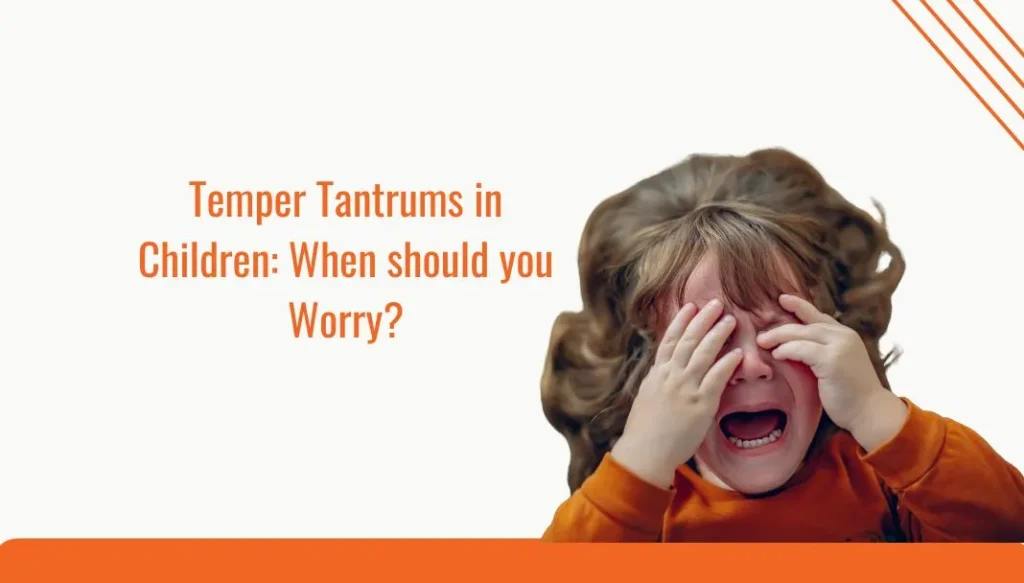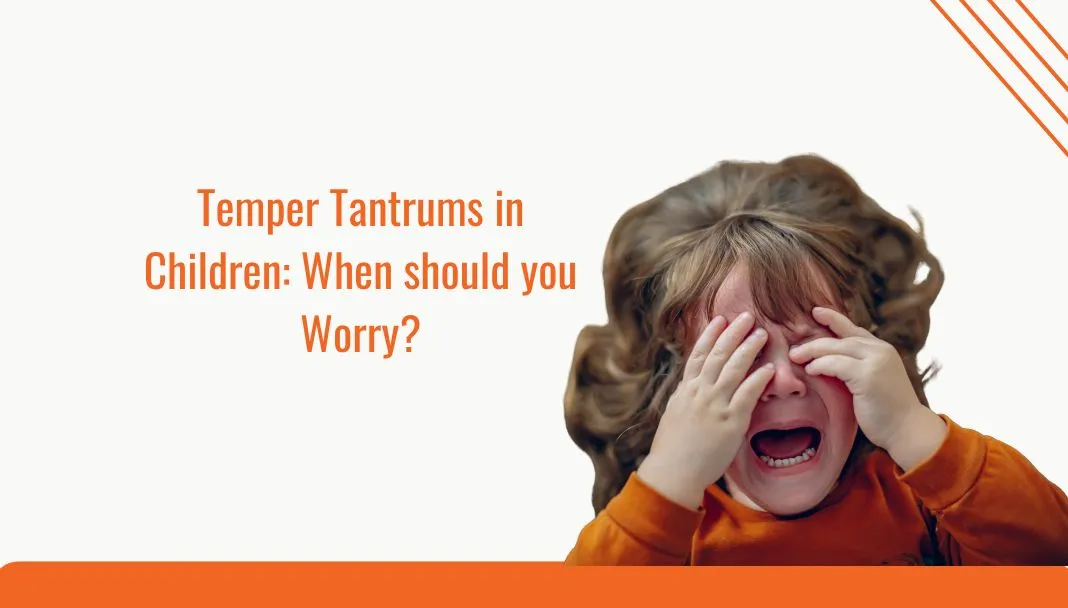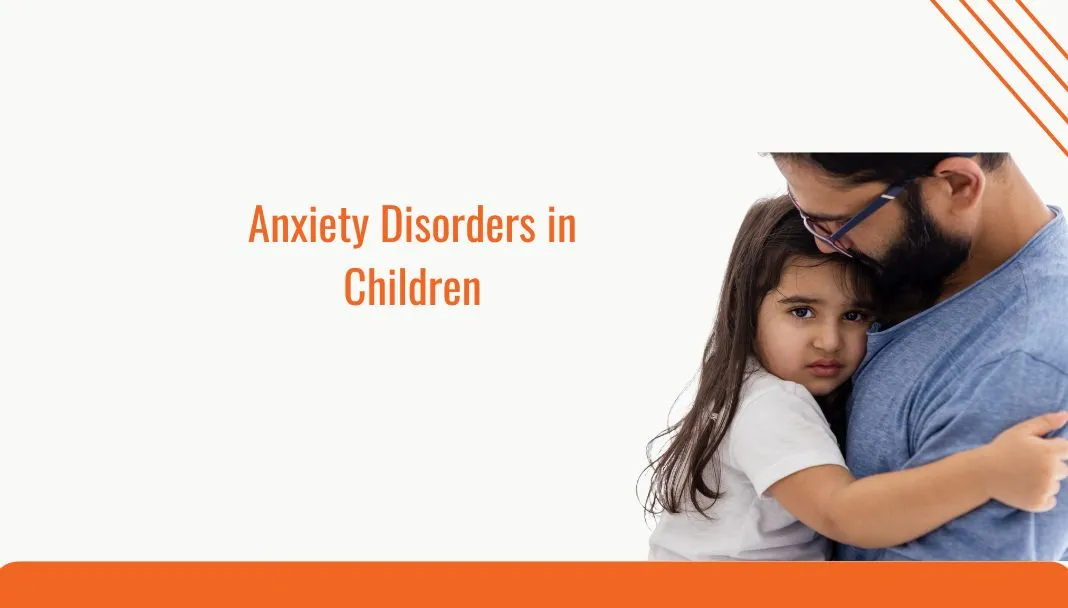Every parent has faced it—your child suddenly breaks down in a loud, tearful temper tantrum, leaving you overwhelmed and wondering what triggered it.
While toddler tantrums are a normal part of early childhood, some tantrums seem unusually intense, frequent, or difficult to manage. So, how do you know when it’s just a phase—or when it might be a sign of something more?
In this blog, we’ll help you understand what’s normal and when it may be time to seek extra support.
What Is a Temper Tantrum?
A temper tantrum is a sudden emotional outburst that typically involves crying, screaming, kicking, hitting, refusing to cooperate or other intense behaviours. Most commonly, tantrums occur when a child is tired, hungry, frustrated, or unable to express what they need.
While toddler tantrums are usually a normal part of development, frequent or extreme tantrums—especially in older children—can sometimes be a sign of underlying neurological or behavioural concerns.
Why Do Toddlers Have Tantrums?
Tantrums are a natural part of childhood development, especially between the ages of 1 and 3. If you’re dealing with frequent three year old tantrums, you’re not alone—tantrums at 3 are incredibly common as children navigate big emotions with limited tools to express them.
At this stage, toddlers are learning to assert their independence but often don’t yet have the language or emotional regulation to handle frustration. When they’re unable to communicate what they want, feel misunderstood, or are told “no,” their emotions can overflow into a meltdown.
Here are some common reasons toddlers have tantrums:
- Frustration: Whether it’s wanting a toy, attention, or a specific activity, not getting their way can trigger a tantrum.
- Limited communication: They know what they want but may not have the words to explain it, which leads to emotional outbursts.
- Hunger, fatigue, or overstimulation: Physical discomfort can lower their ability to cope with everyday challenges.
- Seeking control: Toddlers crave independence but are often faced with limits, leading to power struggles.
- Overstimulation or sudden changes: A busy environment or unexpected transition can spark a meltdown.
Tantrums tend to decrease as language skills improve and children learn better ways to cope with emotions. In the meantime, they are simply a way for toddlers to express big feelings they don’t yet know how to manage.
How to Stop Temper Tantrums Before They Start?
Preventing tantrums often starts with smart planning and understanding your child’s needs. Here are quick, effective tips to reduce tantrum triggers:
- Use positive reinforcement: Praise good behaviour often and be specific about what they did right.
- Offer small choices: Let them pick between two options to give a sense of control.
- Give advance warnings: Let them know when a change is coming, like leaving the park in 5 minutes.
- Teach emotion words: Help your toddler name their feelings—this gives them tools to express themselves without exploding.
- Limit overstimulation: Avoid scheduling too many activities or exposing them to chaotic environments for long periods.
- Stick to routines: Predictability helps kids feel safe and reduces anxiety.
- Keep tempting items out of sight: Reduce frustration by removing off-limit objects.
- Stay flexible when needed: It’s okay to change your mind if you do it calmly and purposefully.
- Use distraction: Shift focus to a new activity or change the environment quickly.
- Support new skills: Encourage independence by helping with tasks they can master.
How to Deal with Toddler Tantrums?

Tantrums can be intense, but how you respond plays a significant role in how your child learns to manage emotions.
Here’s how to handle tantrums calmly and effectively:
- Stay calm and composed: Your child feeds off your energy. Keep your voice steady and body language relaxed to help de-escalate the situation.
- Acknowledge their feelings: Say things like, “I see you’re upset because you can’t have the toy.” This validates their emotions while setting boundaries.
- Respond based on the cause: If they’re tired or hungry, address that need. If it’s frustration or attention-seeking, redirect or calmly ignore.
- Ignore attention-seeking tantrums: Don’t engage or over-explain—walk away or change the activity when safe to do so.
- Don’t give in to tantrums: Giving them what they want teaches that tantrums are effective—stay firm and consistent.
- Find a distraction: Sometimes, a sudden shift in activity or pointing out something interesting can interrupt a tantrum.
- Ensure safety during outbursts: Move your child to a quiet, safe space if they’re at risk of hurting themselves or others.
- Create a calming corner: Offer a soft, quiet space for them to calm down, not as punishment but as a self-soothing option.
After the tantrum:
- Praise calm behaviour: Acknowledge their effort by saying, “You did a great job settling down.”
- Offer comfort and reassurance: Let them know they’re loved, even when their behaviour isn’t perfect—give a hug or kind words.
- Talk about better choices: When calm, help your child name their feelings and think of other ways they could express them.
- Stick to a sleep routine: Overtired kids are more prone to meltdowns—make sure your child gets enough rest daily.
Toddler Tantrums: When to Worry?
Speak to your child psychologist if you notice:
- Tantrums lasting more than 15 minutes regularly.
- Aggression that causes harm to themselves, others, or property.
- Frequent outbursts occur multiple times a day without a clear trigger.
- Tantrums continue regularly beyond age 5.
- Regression in development, such as losing potty training or becoming unusually withdrawn.
- Difficulty calming down, even with comfort or parental support.
- Signs of anxiety or distress between tantrums.
While occasional tantrums are normal, trust your instincts. If something doesn’t feel right, it’s okay to ask for professional guidance.
Visit Neuropedia for Managing Temper Tantrums of Your Child
If your child’s tantrums are becoming overwhelming or seem beyond typical development, professional guidance can make all the difference.
Neuropedia is the first comprehensive pediatric neurosciences center in the region, offering world-class care in neurological, psychological, behavioural, and rehabilitative services.
With a team of the best pediatric neurologists in Dubai, Neuropedia is dedicated to helping children and their families navigate challenges like temper tantrums, emotional regulation issues, and developmental concerns. From expert diagnosis to personalised treatment plans, your child is in the safest hands.











 04 343 1113
04 343 1113 info@neuropedia.ae
info@neuropedia.ae







.png)







